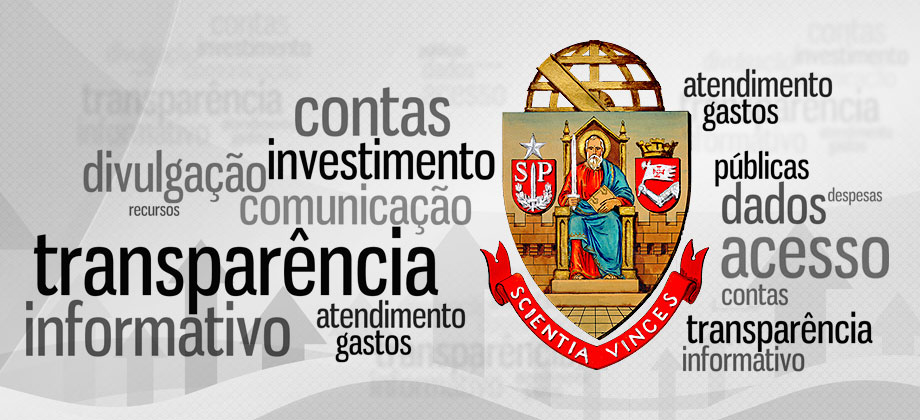Evolution of consumption patterns, economic convergence and carbon footprint of development: a comparison Brazil-France (ECOPA) - FAPESP N° 2012/51466-7
Coordenação:
Profa. Suani Teixeira Coelho
Pesquisador Colaborador:
Prof. Joaquim J. M. Guilhoto
Equipe:
Alessandro Sanches Pereira (Pós-doutorando)
Luís Gustavo Tudeschini (Doutorando)
Fabio Rubens Soares (Pós-doutorando)
Parceiros:
Dr. Franck Lecocq (Centre International de Recherche sur l'Environnement et le Développement - CIRED – France)
Dra. Carine Barbier (Centre International de Recherche sur l'Environnement et le Développement - CIRED – France)
Dr. Franck Nadaud (Centre International de Recherche sur l'Environnement et le Développement - CIRED – France)
Dr. Dominique Desjeux (CERLIS - Centre de recherches sur les liens sociaux – France)
Dr. Ghislain Dubois, TEC – France
Prabodh Pourrouchottamin, EDF R&D - France
Prof. Dr. Emilio La Rovere (COPPE/UFRJ)
Prof. Dr. Amaro Pereira (COPPE/UFRJ)
Profa. Dra. Claude Cohen (UFF)
MSc. Carolina Grottera (COPPE/UFRJ)
Prof. Dr. Edmilson M., dos Santos (IEE/USP)
Profa. Dra. Virgínia Parente de Barros (IEE/USP)
Financiador: FAPESP - 2012/51466-7
Objetivo: O projeto ECOPA visa examinar quão flexível é a relação entre renda per capita e padrões de consumo, e as implicações destes resultados para cenários de emissões futuras.

Eventos para Disseminação dos Resultados:
The Role of Lifestyle Changes in Low Carbon Strategies - The case of Brazil and France
Monday 6th November from 5pm to 6.30pm
 COP 23 - French Pavilion - Bonn Zone
COP 23 - French Pavilion - Bonn Zone- Program
Carine Barbier (CIRED - France) - INTRODUCTION – ECOPA PROJECT: EVOLUTION OF CONSUMPTION PATTERNS, ECONOMIC CONVERGENCE AND CARBON FOOTPRINT OF DEVELOPMENT. A COMPARISON BRAZIL –FRANCE
Franck Nadaud (CIRED - France) - Carine Barbier (CIRED – France) - HOUSEHOLD EXPENDITURE PROFILES IN FRANCE AND BRAZIL
Suani Teixeira Coelho (GBIO/IEE/USP) - FIREWOOD CONSUMPTION AND CARBON EMISSIONS IN BRAZILIAN REGIONS - THE ECOPA PROJECT
Claude Cohen (UFF) - HOUSEHOLD EXPENDITURE PROFILES IN FRANCE AND BRAZIL
Amaro Pereira (UFRJ) - DETERMINANTS OF THE CHANGES IN ENERGY CONSUMPTION PATTERN OF BRAZILIAN HOUSEHOLDS
Luis Tudeschini (GBIO/IEE/USP) - Suani Teixeira Coelho (GBIO/IEE/USP) - INEQUALITY CHANGES AND CARBON FOOTPRINT IN BRAZIL
Caroline Grottera (UFRJ) - Julian Lefevre (Cired) - THE ROLEOF LIFESTYLE CHANGES IN LOW CARBON STRATEGIES BRAZIL AND FRANCE
Workshop Ecopa Project - The Role of Lifestyle Changes in Low Carbon Strategies - The case of Brazil and France - FAPESP N° 2017/18548-3
December 11th and 12th, 2017
 Institute of Energy and Environment / University of São Paulo
Institute of Energy and Environment / University of São Paulo
O acordo de Paris reconheceu que os estilos de vida desempenham um papel importante na abordagem das mudanças climáticas. Soluções puramente tecnológicas não podem produzir uma transição para um desenvolvimento de baixo carbono por si só: os padrões de consumo também terão que evoluir. Como antecipar mudanças de estilo de vida nas economias em crescimento? Em que medida as mudanças do padrão de consumo podem contribuir para cenários de baixo carbono para o Brasil e a França, a fim de agregar o aumento de temperatura de 1,5 graus Celsius. Estes entre outros temas importantes sobre economia de recursos energéticos e comportamentos sociais relacionados ao consumo serão apresentados e discutidos por pesquisadores especialistas de Universidades e Instituições de Pesquisa da França e do Brasil.
As apresentações correspondem aos resultados do Projeto ECOPA ‐ "Evolution of consumption patterns, economic convergence and carbon footprint of development: a Brazil‐France comparison", realizado pelo Gbio/IEE/USP , pelo CIRED (França) e por COPPE (UFRJ)/UFF.
Projeto ECOPA financiado pela Agência Nacional de Pesquisa Francesa, a Fundação para Pesquisa do Estado de São Paulo e EDF R & D e apoiado por MPDD e SMASH.
- Program
1º Day – December 11th,, 2017
8:30-9:00 – Registration
9:00 - 9:30 am - Opening Session
Colombo Tassinari (IEE/USP - Director)
Carine Barbier (CIRED/France)
Celio Bermann (PPGE/IEE/USP – Coordinator)
Suani T. Coelho (GBIO/IEE/USP) -
9:30 – 12:00 am
"Household consumption patterns: a comparison Brazil / France” – Claude Cohen (UFF) and Carine Barbier (CIRED - France)
"GHG emissions in Brazil and the role of CGEE" - Marcelo Poppe (CGEE)
"Linking Electricity Consumption of Home Appliances and Standard of Living: a Comparison between Brazilian and French Households" - Carolina Grottera (UFRJ)
"Fuelwood consumption and carbon emissions in Brazil" - Suani T. Coelho (GBIO / IEE / USP) and Alessandro Sanches Pereira (GBIO/IEE/USP)
"Evolution of Brazilian households energy consumption: 2002 and 2008" - Amaro Pereira (UFRJ)
12:00-12:30 - Discussions
12:30 - 2:00 pm - Lunch Time
2:00 - 4:00 pm
Introductory Speach – Prof. Dr. Jose Goldemberg - President of Fapesp
“Consumption partners in selected households: a case study in Sao Paulo” -Fabio Rubens Soares (GBIO/IEE/USP)
“Emissions from Tourism Sector – Brazil” – Jean Paul Ceron (CIRED/France)
4:00 - 4:30 pm – Coffee Break
4:30 - 5:15 pm
“Inequality Changes and Carbon Footprint in Brazil” – Luis G. Tudeschini (GBIO/IEE/USP)
“International trade and carbon footprint of French households” - Gaelle Le Treut (CIRED/France)
5:15 - 5:45 pm – Discussions
2º Day – December, 12th, 2017
9:30 - 10:45 am
“GHG emission scenarios considering changes in patterns of consumption, income distribution and economic growth” - Carine Barbier (CIRED France) and Carolina Grottera (UFRJ)
10:45 as 11:00 am – Coffee Break
11:00 às 12:00 am
General Conclusions and Next Steps
3º Day – December, 13th, 2017
Mini Cursos - O papel das mudanças de estilo de vida em estratégias de baixo carbono – O Caso do Brasil e da França
9:00hs as 12:00hs
Local : Sala ANP no IEE – Universidade de São Paulo
Palestrantes :
Carine Barbier (CIRED/França) ‐ Consumo de energia x estilo de vida
Jean Paul Ceron (CIRED/França) – Emissões de carbono no setor de turismo brasileiro
Amaro Pereira e Carolina Grottera (COPPE/UFRJ) – Modelo IMACLIM
Publicações do Projeto:



